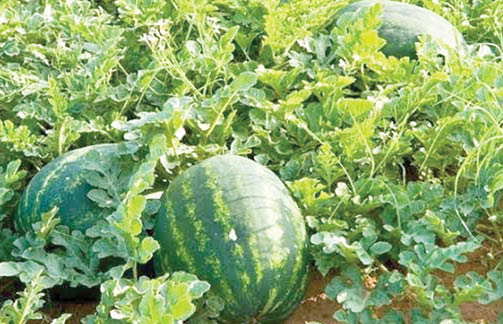A farmer in Edo State, Joel Usiagu, has described water melon farming as a very lucrative business that farmers in the state are not willing to venture into.
Usiagu, who is the Edo State chairman, All Farmers Association (AFAM), said water melon production is doing well in Edo but the potentials are yet to be tapped.
How Kano residents live on Karfi onion market
Allowing rice importation will cripple our industries – Processors
He said though the crop is known to be grown only in the Northern part of the country, the few of them who have started cultivating it in the state can attest that it can also do well in the South.
“Most of us farming it in Edo burnt our hands and learnt again as most of us suffered losses but that didn’t stop us. I lost many hectares of water melon to cows but I didn’t stop.”
He said the planting process of the crop is very simple because it doesn’t need too much rain.
“We start land preparation from February and started planting by March when the rain begins and by April/May when the rain become heavy, we start harvesting. But the late season planting started by August. I just planted 12 hectares of water melon three weeks ago and by November they would be due for harvesting.”
He said unlike some other crops, water melon doesn’t need too much rain, saying “that is why we don’t plant at the peak of the rain. We have the hybrid and non-hybrid seeds for planting; all farmers need to do is to put them on the soil and when they sprout, you treat them with insecticides and pesticides. The most important things is to weed the land because it can’t compete with the grasses, especially the elephant grass.”
He said water melon from the North is pinkish in colour because of fertilizers while that from Edo is reddish because of the fertile nature of the land.
On the challenges, Usiagu said water melon is prone to herders’ attack because it is snack for cows.
“The challenge of water melon farming is that it is a snack for cows, so when herders see the farm, they attack it. It is also prone to pest attack, but we use pesticides, fungicides and insecticides to ward pest off.”
He said another challenge of water melon farming is that the seeds are very expensive which most people cannot afford. 1,000 seeds of one of the hybrids (Signeta) cost N15,000, it is only risk takers that can go into such farming.
“So, it is only when you look at the return on investment that you can take the risk, though it is very profitable.”
He explained that, “each seed has the capacity of producing five balls and if you multiply this by 1,000, it will give you 5000 balls and if you sell at the price of N500 each, you get N2.5 million.
“We have large ball, extra-large ball, number 1, number 2 balls and the prices vary according to size. When you grow water melon in Edo, you get good return on investment. Vegetable farming is very lucrative but people run away from it because of absence of storage facilities.”
He said water melon farming is a delicate one and the risk are more than the challenges, adding that he would not advise people to just jump into it because it is lucrative, but they should be well prepared to absolve the shock inherent in it.
“From the 12 hectares I planted when I started, I only got eight hectares.”

 Join Daily Trust WhatsApp Community For Quick Access To News and Happenings Around You.
Join Daily Trust WhatsApp Community For Quick Access To News and Happenings Around You.


